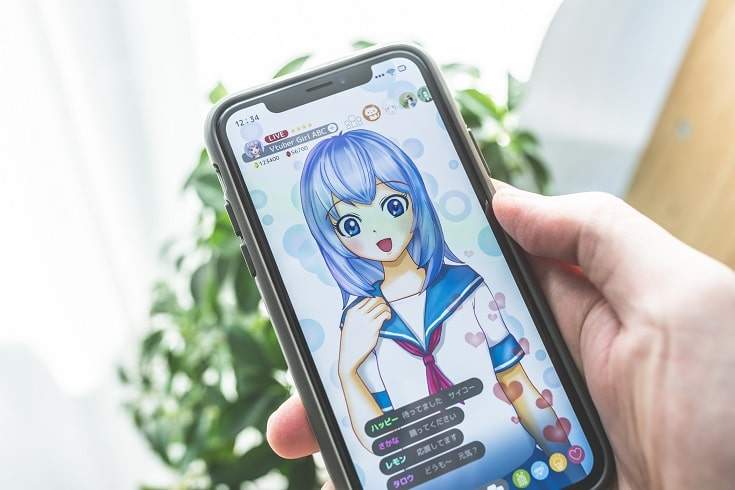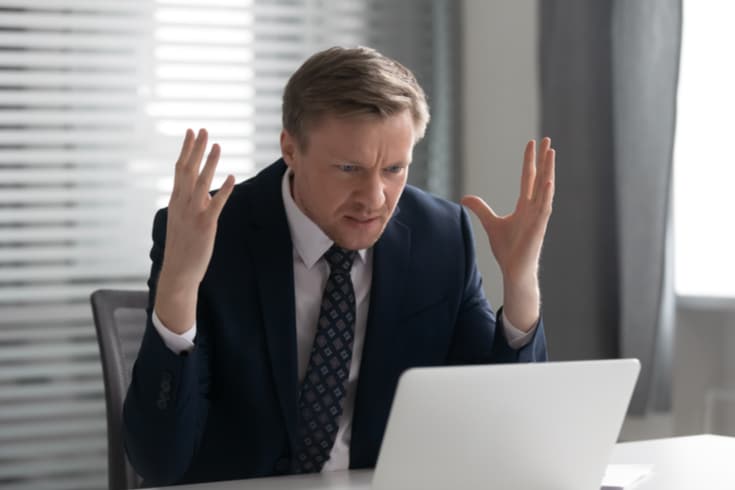Is it Possible to Trademark a YouTube Channel Name? Explaining the System of Trademark Applications

The name of your YouTube channel is a crucial element in distinguishing it from other channels.
Therefore, there are YouTubers who use distinctive channel names.
In the past, there was a case where a YouTuber who was not the operator of the channel in question applied for a trademark for the YouTube channel name, which became a topic of discussion.
In this article, we will explain about trademark registration of YouTube channel names, targeting YouTubers.
What is a Trademark Right?
A trademark right is the right of the trademark holder to use the registered trademark exclusively and restrictively for the designated goods or services.
In order to be granted a trademark right, it is necessary to apply for a trademark and complete the trademark registration.
Among intellectual property rights, there are copyrights. However, copyrights are rights that arise under the law without requiring any special procedures, which is different from trademark rights that require a trademark application process.
Trademark rights are recognized to have the function of indicating origin, guaranteeing quality, and advertising promotion.
https://monolith.law/corporate/intellectual-property-infringement-risk[ja]
Trademark Registration Process & Fees
To register a trademark, it is necessary to file an application with the Japanese Patent Office.
Once the application is submitted, it will be examined by a trademark examiner.
If the application passes the examination by the trademark examiner, you can receive trademark registration.
As for the cost of trademark registration, application fees and registration fees are required.
The application fee is 3,400 yen + (8,600 yen x number of classes) that needs to be paid.
The registration fee is 28,200 yen x number of classes that needs to be paid.
Additionally, if you delegate the trademark registration process to professionals such as attorneys or patent attorneys, you will need to pay a fee to these professionals, separate from the application and registration fees.
The cost to pay to professionals such as attorneys or patent attorneys varies depending on whether a preliminary trademark search is conducted and how many classes the application is filed for, but in many cases, it ranges from several tens of thousands of yen to several hundred thousand yen.
Trademarks That Cannot Be Registered

Not all trademarks can be registered. There are cases where a trademark registration is not granted as a result of an examination by a trademark examiner.
In the following, we will introduce cases where a trademark cannot be registered.
Trademarks That Cannot Be Distinguished from Other People’s Goods or Services
Firstly, trademarks that cannot be distinguished from other people’s goods or services cannot be registered.
Specifically, the following can be considered:
- Trademarks that only display the common name of a product or service (Japanese Trademark Law Article 3, Paragraph 1, Item 1)
- Trademarks that are commonly used for products or services (Japanese Trademark Law Article 3, Paragraph 1, Item 2)
- Trademarks that only display the place of origin, sales location, quality of a product, or the location or quality of a service (Japanese Trademark Law Article 3, Paragraph 1, Item 3)
- Trademarks that only display a common surname or name (Japanese Trademark Law Article 3, Paragraph 1, Item 4)
- Trademarks that consist only of extremely simple and common symbols (Japanese Trademark Law Article 3, Paragraph 1, Item 5)
- Trademarks that cannot be recognized as related to the goods or services of any person’s business (Japanese Trademark Law Article 3, Paragraph 1, Item 6)
Trademarks That Are Confusing with Public Institutions or Contrary to Public Interest
Trademarks that are confusing with public institutions cannot be registered as they may harm the interests of the trademark or the consumer.
Specifically, the following can be considered:
- Trademarks identical or similar to the national flag, chrysanthemum crest, medal, or foreign national flag (Japanese Trademark Law Article 4, Paragraph 1, Item 1)
- Trademarks identical or similar to emblems, symbols, etc. of foreign countries, international organizations designated by the Minister of Economy, Trade and Industry, the Red Cross on a white background, or the name “Red Cross” (Japanese Trademark Law Article 4, Paragraph 1, Items 2, 3, 4, and 5)
- Trademarks identical or similar to famous symbols that represent the country, local public entities, etc. (Japanese Trademark Law Article 4, Paragraph 1, Item 6)
- Trademarks that may harm public order or good morals (Japanese Trademark Law Article 4, Paragraph 1, Item 7)
- Trademarks that may cause misunderstanding about the quality of a product or service (Japanese Trademark Law Article 4, Paragraph 1, Item 16)
- Other trademarks identical or similar to the award of an exposition (Japanese Trademark Law Article 4, Paragraph 1, Item 9), trademarks consisting only of a three-dimensional shape necessary to secure the function of a product or its packaging (Japanese Trademark Law Article 4, Paragraph 1, Item 18)
Trademarks That Are Confusing with Other People’s Registered Trademarks or Well-Known/Signature Trademarks
Trademarks that are confusing with trademarks used by others or with other people’s names or titles cannot be registered either.
Specifically, the following can be considered:
- Trademarks that include other people’s names, titles, or famous stage names, abbreviations, etc. (excluding those with the consent of the other party) (Japanese Trademark Law Article 4, Paragraph 1, Item 8)
- Trademarks identical or similar to other people’s well-known trademarks and used for identical or similar goods or services (Japanese Trademark Law Article 4, Paragraph 1, Item 10)
- Trademarks identical or similar to other people’s registered trademarks and used for identical or similar designated goods or services (Japanese Trademark Law Article 4, Paragraph 1, Item 11)
- Trademarks that may cause confusion with goods or services related to other people’s business (Japanese Trademark Law Article 4, Paragraph 1, Item 15)
- Trademarks identical or similar to other people’s well-known trademarks and used with fraudulent intent (Japanese Trademark Law Article 4, Paragraph 1, Item 19)
- Other trademarks identical to other people’s registered protective symbols (Japanese Trademark Law Article 4, Paragraph 1, Item 12), trademarks identical or similar to the names of varieties registered under the Plant Variety Protection and Seed Act (Item 14), trademarks that include the indication of the origin of grape wine or distilled liquor without indicating the true origin (Item 17)
About Trademark Registration of YouTube Channel Names

Regarding YouTube channel names, it can be argued that they are merely indicative of the content of the service and may not be eligible for trademark registration due to their relationship with Article 3, Paragraph 1, Item 3 of the Japanese Trademark Law (trademarks that merely indicate the origin, sales location, quality, etc. of goods or the location or quality of service provision) and Article 4, Paragraph 1, Item 16 of the same law (trademarks that may cause misunderstanding about the quality of goods or services).
However, considering that videos with subtitles are posted within YouTube channels, it is difficult to identify the specific content of the posted videos from the YouTube channel name. Therefore, it is believed that a YouTube channel name does not immediately recognize and understand the quality of a specific service, and thus, it could be possible to register it as a trademark.
How to Deal with Cases Where a Trademark Application Has Been Filed Earlier
As mentioned above, there are various cases where trademark registration may not be granted. Broadly speaking, there are cases where trademark registration cannot be granted regardless of the response, and cases where trademark registration can be granted if some response is made.
An example of the latter is a case where someone else has applied for trademark registration for the mark you intended to register.
In cases where an application has been filed earlier, it is possible to respond by providing information on trademark registration (Article 19 of the Japanese Trademark Law Enforcement Regulations), filing an objection to registration (Article 43-2 of the Japanese Trademark Law), or requesting a trial for invalidation of trademark registration (Article 46 of the Japanese Trademark Law).
In cases where an application has been filed earlier, it is possible to argue that it falls under Article 4, Paragraph 1, Item 7, the same paragraph, Item 10, the same paragraph, Item 15, or the same paragraph, Item 19 of the Japanese Trademark Law.
However, just because you take the above measures does not necessarily mean you can deal with the trademark registration by others. You need to meet the legal requirements.
Incidents Regarding Trademark Registration of YouTube Channel Names
In 2021, there was an incident where trademark applications were made by third parties unrelated to the operation of the channels for popular YouTube channel names such as “Kimagure Cook”, “Kuma Cooking”, and “Buzz Recipe”.
This incident became a topic on SNS and other platforms, and while the reason is not clear, all trademark registration applications except for “Kuma Cooking” were withdrawn on September 1, 2021.
When checking the status of the trademark application for “Kuma Cooking” on the Patent Information Platform, it shows that a trademark registration application was filed on October 6, 2020, and it was registered for examination on August 20, 2021. As a result, the application for “Kuma Cooking” was rejected on December 13, 2021, due to the reason that “no registration fee was paid”.
Conclusion
We have explained the process of trademark registration for YouTube channel names, specifically targeting YouTubers who operate these channels.
While it is often possible to register YouTube channel names as trademarks, there is a risk that if you do not register, someone else might register your channel name as their trademark.
Therefore, we recommend that YouTubers who operate YouTube channels consult with a lawyer or other professional with expertise in trademark registration.
Introduction to Our Firm’s Measures
Monolith Law Office is a legal office with high expertise in both IT, particularly the internet, and law. In recent years, we have been handling many advisory cases for YouTubers and VTubers, who are becoming popular online. The need for legal checks in channel management and contract-related matters is increasing. At our firm, attorneys with specialized knowledge are in charge of these measures.
Please refer to the following article for more details.
Category: Internet





















